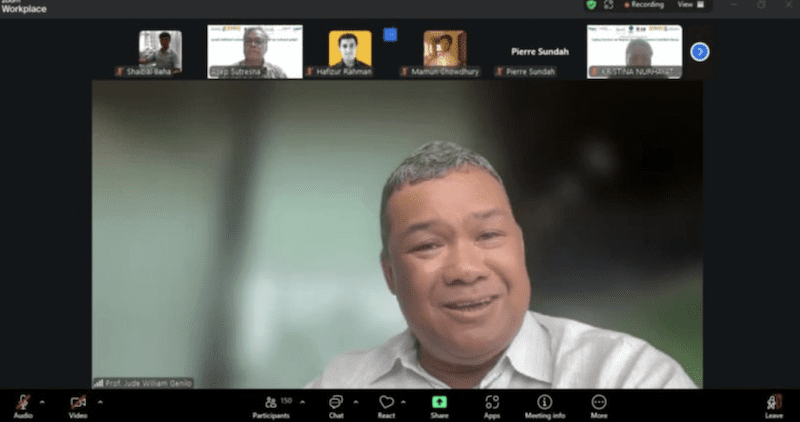
Still confused? It is the difference between public and private campuses.
September 30, 2022
Tips on Overcoming Burnout During Lectures
October 2, 2022
Although under the same roof as communication sciences, these two majors are different. (source: freepik)
Some consider journalism and broadcasting to be the same major.
Even though the two majors have the exact communication science, they are two different majors.
Read: Journalism Major: 5 Career Prospects Apart from Journalists
What is Digital Journalism
Initially, the term was never an official designation, but now it has become a universal term in journalism studies, namely digital journalism or digital journalism. Digital journalism has become the name of a course or specialization in various world universities, such as the University of South Florida USA or Multimedia Nusantara University (UMN) Indonesia.
The term digital journalism arises when journalists use various digital resources as part of their journalistic work. Related activities begin with searching for news objects, collecting and selecting data, producing news, and disseminating information to the public. It includes gathering feedback from the audience, but at the same time, digital technology allows the media to interact actively with the audience and vice versa.
But lately, digital journalism is increasingly being used because of how it is used. Some insights from journalism research experts are used as a reference for a philosophy of digital journalism that is different from traditional journalism. Digital journalism can also be interpreted by looking at the pattern of journalistic activity after the advent of digital technology.
Difference between Digital Journalism and Broadcasting
Judging from the name alone, they are different. So what’s the difference between the two? Curious, let’s look at the following reviews about the differences between digital journalism and broadcast majors!
1. Different Major Concentrations
Depending on your concentration level, journalism courses will teach you much about journalism, from searching, creating, and editing to delivering messages.
Whether mass media or electronic media, I only know the news media.
Broadcasting focuses on producing news and non-news programs for television and radio. Program production explores creative aspects such as concepts, scripts, research, and marketing-related things.
2. Different Subjects Learned
As the name suggests, journalism offers soft skills courses in the news world—media theory, news production, interview techniques, writing and delivering news, etc.
In addition, the broadcaster offers courses on technical issues in the media industry. For example, program production technology, recording technology, transmission technology, or other transmission technology.
3. Different Portions of Knowledge
Even though they both study media technology, the knowledge sharing between the two fields is different. Journalism students who enter the Department of Communication Studies in semesters 1-6 study all existing communication science courses. From public relations to advertising to journalism itself.
For example, students majoring in journalism usually have skills in other areas as well. Of course, this is still relevant to the science of communication. Now, from the beginning of the semester to the end of the lecture, broadcasters are serious about studying broadcasting and program production.
5. Graduate Competencies
Journalism graduate students are expected to be proficient in news writing, production, and production. On the other hand, radio graduates are expected to have special skills such as the conception of television and radio programs and research and marketing of radio programs.
6. Different Career Opportunities
With their abilities, journalism graduates have job opportunities as news announcers, presenters, journalists, and writing editors. However, suppose you do not want to be involved in the media. In that case, journalism graduates can also work in government institutions such as the Indonesian Broadcasting Commission (KPI) or the Ministry of Communication and Information (Kominfo).
While broadcasting graduates have job opportunities as news announcers, radio broadcasters, creative teams, floor directors, production assistants, camera people, program planning division, sound department, and others.
However, when they are in the world of work, journalism and broadcasting graduates will usually work together in the same field. Not infrequently, graduates of the two majors have professions in swapped areas, you know!
Read: 8 Journalistic Skills You Will Learn in Journalism Major
So that’s the difference between the Department of Digital Journalism and Broadcasting. Although one family is in the communication faculty, the two majors differ significantly. I hope you can choose the right one!
You can learn more about other exciting information through the UMN official website. On the website, you can also choose the online registration procedure according to your choice. Come on, register now and start your career with UMN!
Sources:
IDNtimes
Compass
Wikipedia





